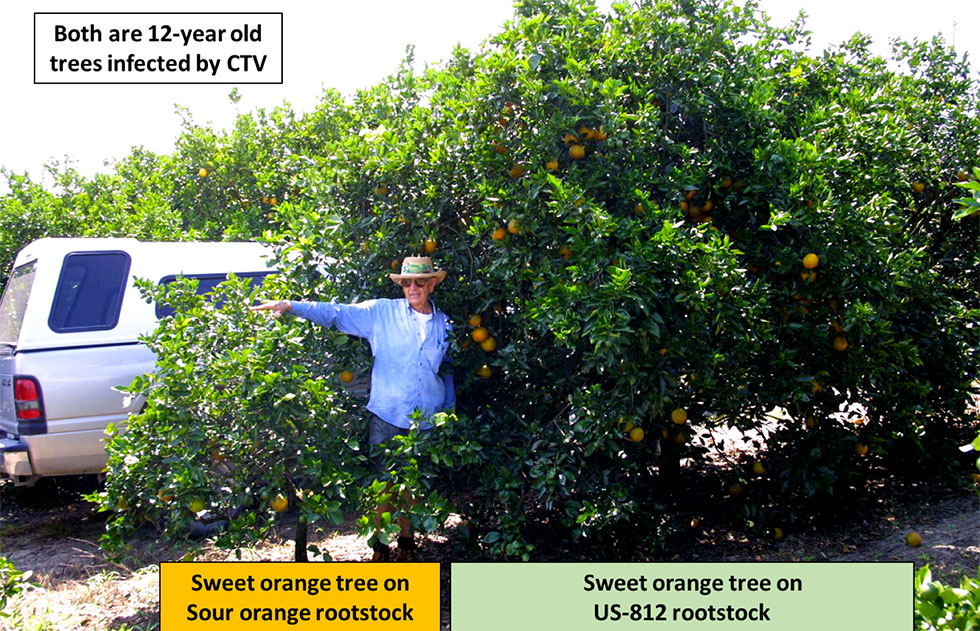A grafted citrus tree typically has the best combination of good fruit quality (from the scion), and healthy roots (from the rootstock) that are able to tolerate diseases, pests, and challenging abiotic environmental conditions. Although the fruit characteristics are primarily determined by the scion cultivar, the fruit size, color, and sweetness can also be significantly affected by the rootstock.
The rootstock cultivar has a strong effect on the ability of a citrus tree to resist or tolerate infection by diseases such as citrus tristeza virus (CTV), Phytophthora nicotianae, and Candidatus Liberibacter asiaticus (CLas). For widely planted rootstocks, disease response is well known, such as the sensitivity of sour orange rootstock to CTV, and the tolerance of US-812 rootstock to CTV.

For other rootstocks, tolerance to diseases and abiotic factors is not yet clearly documented, and is best determined through replicated multi-year field trials in an affected area.
